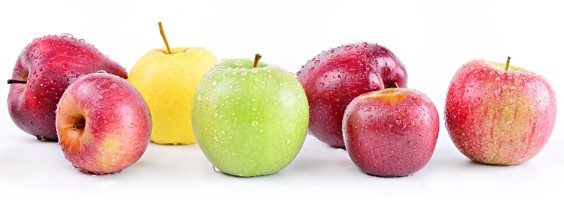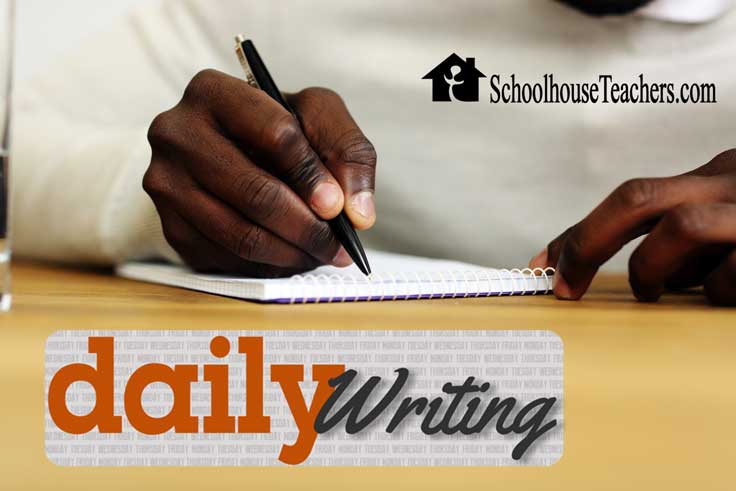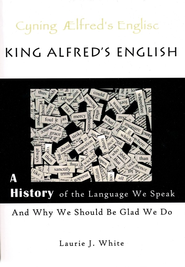I’ve had a long and strange relationship with the classics.
In 8th grade, our English class read Nathaniel Hawthorne’s The Scarlet Letter, but I could never figure out what the red “A” stood for.
As an Christian adult, I developed the inexplicable idea that reading fiction was a waste of time. I should read only religious or self-help books . . . until I became so ill that I was bored out of my skull for one month lying on the couch. Then I turned to the only fiction book in our tiny trailer: a complete collection of Sherlock Holmes stories, which seemed appropriate for someone with the last name of Watson.
I was hooked, and I never looked back.
(Well, there was that one time when I resisted reading George Eliot’s Silas Marner because I mistook “Marner” for “Mariner,” and I have a dislike for sea-going stories but then read it and it became one of my FAVORITES! But that is another story.)
 The right classics have the power to inspire, educate, delight, inform, and mold us and our students. I’ve compiled a list of ten classics I believe are must-reads for high school students, and I’ve included some reasons why each book is on the list.
The right classics have the power to inspire, educate, delight, inform, and mold us and our students. I’ve compiled a list of ten classics I believe are must-reads for high school students, and I’ve included some reasons why each book is on the list.
Whether you are celebrating National Reading Month or simply looking for classics for your homeschool, this list will come in handy. Here we go . . .
10 Must Reads
1. Les Misérables by Victor Hugo
This beautiful, painful story of redemption is set in France in the early 1800s. Novelist Upton Sinclair, in an anthology, declared it “one of the half-dozen greatest novels of the world,” and I concur. The scene with Bishop Myriel, the ex-convict Jean Valjean, and the two stolen candlesticks is well worth the price of admission.
Even though Hugo inserts tedious chapters that have nothing to do with the plot, his characters and their situations leap off the page. The redeemed Jean Valjean tries to make his way through life while rescuing others. Will his true past become known and bring him to ruin? Will his nemesis, who has pursued him throughout the whole novel, finally catch him?
And although unjust laws and poverty have made the poor miserable throughout this novel, who really is the miserable one in the end? Hmm. . .
2. Electra by Sophocles
If your students are going to read Greek plays, have them begin with this one. It is short and fairly easy to read.
Electra’s mother kills her father, and it now becomes the task of Electra and her brother Orestes to deal out the retribution upon their mother. In our world of honor killings and revenge, Electra is a timely play to discuss these issues with our students.
While many older plays and novels are written about men or feature passive women, Electra shines a light on a pretty strong woman.
3. A Christmas Carol by Charles Dickens
It was hard to narrow down the Dickens novels to only one, but I chose A Christmas Carol for its brevity, its straight-arrow plot, and its many characters and features that have become part of our cultural consciousness. Now, when students read an allusion to Scrooge, they’ll know firsthand what it means.
Even though students might be familiar with the story from movie versions, I think they will be surprised when they read the original version and see how it differs from what they think they know about it.
4. To Kill a Mockingbird by Harper Lee
I avoided reading this novel because I thought would be violent. When I finally broke down and read it, it became one of my favorite novels. I loved the delicacy and beauty I found inside.
Scout, her brother Jem, and their friend Dill are growing up in the South where Black men could still be lynched. Scout’s father is the lawyer assigned the job of defending a Black man accused of raping a young white woman. That’s a source of high tension in the novel.
Despite this backdrop of violence, the novel glows with stories of Scout’s adventures with her brother and friend and with her summers growing up. There’s the mystery of their neighbor Boo Radley, which Scout jumps into head first. There’s Scout at the party, trying to be grown up. And there’s the solid anchor of Scout’s father Atticus who warns the children with their new air-rifles that “it’s a sin to kill a mockingbird” because all they do is “sing their hearts out for us.”
How we treat others seeps out of this novel and into our consciousness.
5. Our Town by Thornton Wilder
This moving play features an interesting cast—dead people. This creative liberty is not gruesome or creepy. Instead, it encourages readers to live life with no regrets and to appreciate your family while you are with them.
It was a life-changing play for me when I read it as a teen, and I think it will be for yours as well.
6. Much Ado About Nothing by William Shakespeare
Yes, I could have put Romeo and Juliet here, but I believe our teens already live with enough hormonal angst. Why pile it on?
Much Ado About Nothing is a fun, romantic romp involving a snarky young woman and the young man she verbally jousts with throughout the whole play. And don’t forget the misunderstandings and miscommunications, and the comic-relief constable who consistently garbles his words.
7. Heart of Darkness by Joseph Conrad
This powerful and somewhat depressing novella explores what happens to a man— and by extension, a country or company—who throws off the constraints of society and morality to live as he wishes.
Most of the action takes place on the Congo River in the jungles of Central Africa, as told by the narrator Marlow, an ivory trader. Soon into his journey, he hears of a man named Kurtz and is so enamored with the mystery of this man that he changes his plans and decides to find him.
The decapitated heads impaled on poles surrounding the house Kurtz lives in should have warned Marlow. You would think.
8. Frankenstein by Mary Shelley
What happens when your scientific experimentation runs ahead of your ethics? You get a monster who turns on his creator and calls himself a “fallen angel.”
Reanimation was a hot topic in scientific circles in the early 1800s, and young Mary Shelley, her husband Percy Bysshe Shelley, and friends discussed the possibility of an animal or person being brought back to life through electric shock.
This novel, through its events, explores the ethics and possible results of doing this, but it also does something else that I find fascinating. It explores the relationship between the creator and the created, which has ramifications for Christian readers.
9. Sense and Sensibility by Jane Austen
Should people live by their heart or by their head? Sense and Sensibility was written at a time when this philosophical question was on thinking people’s minds and was often the topic of discussion.
It is still a valid question today. Which is more important: the heart or the head? Which should we rely on when making major decisions—our mind and the facts or our emotions and spontaneity?
Austen pits one sister against the other as each chooses her different path. One sister takes the path of the heart, one of the head. The interesting thing is that, by the end of the novel, each sister has moved closer to the other by moving to the middle. Ah, then perhaps it is not an either/or proposition after all.
10. Fahrenheit 451 by Ray Bradbury
This futuristic novel makes firemen the fire starters! They find books and then burn them. But, lest you think this novel is about censorship, be forewarned. It is not. Even Bradbury claimed it was not.
Bradbury was worried that our technology and our lack of any inclination to simply take a stroll somewhere was going to cripple us. Our pursuit of entertainment was going to make us stupid. And our desire to be happy at all costs was really going to cost us our human spirit.
Is he too far off the mark?
That’s the end of my list, and there are glaring holes in it. For instance, I have nothing by Mark Twain, and Bilbo is completely ignored. What can I say? A list of 10 is so limiting.
Lee Binz of The HomeScholar has a more exhaustive list, which you can read here.
Please be aware that most of these novels were never written for teens; they were written for adults. Therefore, they may have language or situations in them that you do not approve of for your teen. Check out these or any novels before your teens read them. You’re the boss!
Yours for more vibrant writing and literature classes,
 .
.
Teachers, connect with me on Facebook or Pinterest!











I loved the book island of the Blue Dolphins.
Thank you, Sherri. That’s a popular book!
The Chronicles of Narnia. As a Christian, I grew up knowing the connection C.S. Lewis had to our community and the impact these books would have. I didn’t really ‘get’ it until I was nearly an adult. My 10 yr old has read the series twice now, and still misses huge portions of doctrine that is so moving to me. It’s a great story, but so much more meaningful as an older reader.
The Chronicles of Narnia would be a great addition to this list, Melly! I know what you mean about not getting the layers of meaning until you were older. That’s how I felt about watching The Sound of Music as an adult. As a child, I was not aware of the adult conflicts; I simply enjoyed the children’s world.
You mentioned a connection C. S. Lewis had to your community. Would you like to tell us a little about it?
Island of the Blue Dolphins, Old Yeller, The House of Sixty Fathers, Lord of the Rings, The Hobbit, A Wrinkle in Time, Chronicle of Narnia, The Scarlet Letter, I Know Why the Caged Bird Sings, The Lost World, Jane Eyre, Red Badge of Courage, Peter Pan, The Wind in the Willows, The Bad Beginning, Crispin and the Cross of Lead………………….sorry……………got carried away! 🙂
Yes, yes, yes, yes! So many inspiring titles there!
We love My Side Of The Mountain!!
Thanks, Naomi. One of my sons loved that one, too!
“Where the Red Fern Grows”–the first book I read that didn’t have a happy ending. So powerful! And any Steinbeck. Probably “Of Mice and Men.”
Thanks for your additions to this list, Christina!
The Snow Goose by Paul Gallico. I read this as a teen and I still remember the haunting beauty of the marshes; the author literally paints the with words. This is the story of a man who was rejected by society yet he gave his life to save others. It touched me in a way few books have.
The Snow Goose also has the advantage of being a short book, a novella, which may be appealing to relunctant readers.
Books are powerful that way, aren’t they, Jennifer? Thank you for your recommendation; I’ll have to give The Snow Goose a try!
I would add Animal Farm to that list, and The Hiding Place as well.
Excellent choices, Dawn!